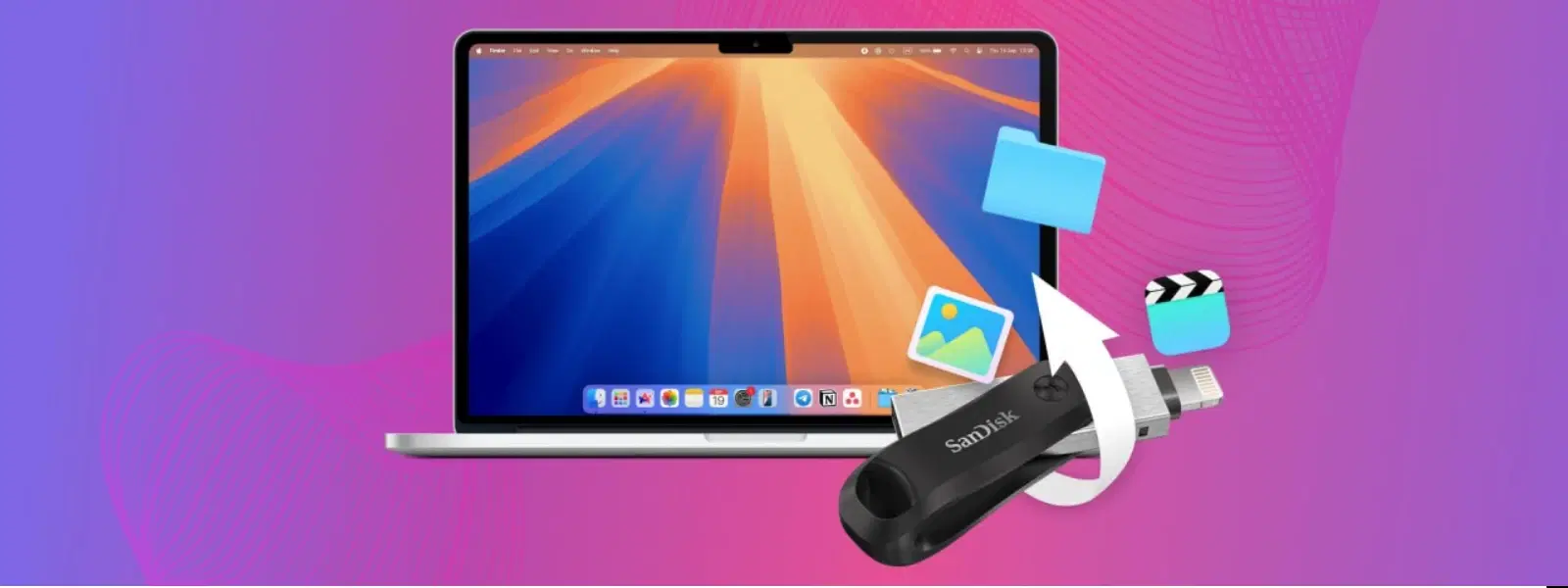
Consumer Electronics
•03 min read
Ever faced the frustration of trying to format a pendrive on your Mac, only to be met with confusing steps and technical jargon? You’re not alone! In this guide, we simplify the process and answer common questions on how to format a pendrive in Mac. Whether you need to erase a pendrive on macOS to prepare it for use or troubleshoot issues with your USB drive, read on and learn easy, step-by-step methods using tools like Mac Disk Utility.
Formatting a pendrive means preparing the drive by setting up a file system and erasing the old data. It is different from simply erasing data. Formatting makes the pendrive ready for a new task – be it storing files, running apps or even troubleshooting issues. When you reformat USB drive Mac, you are essentially creating a clean slate. This ensures that your drive is optimised for the type of files you plan to store or for use in specific systems.
Mac users have several file system options. FAT32 and ExFAT are popular when you need to prepare USB for Mac use across different systems, such as Windows and macOS. For users sticking strictly to the Mac environment, APFS or HFS+ is ideal. Knowing your intended use is key. If you want to clean pendrive using Mac for both Windows and Mac, ExFAT is a reliable choice.
The simplest method is to use the built-in Disk Utility. Follow these steps:
Open Finder and navigate to Applications > Utilities > Disk Utility.
Select your pendrive from the list on the left.
Click the Erase button and choose a file system that suits your needs.
Name your drive and confirm the action.
Once complete, verify the formatted drive and start using it right away.
For those comfortable with the command line, Terminal offers an alternative method. Using commands such as diskutil eraseDisk, you can format a USB drive on Mac quickly. Please note: this should only be attempted by advanced users as improper use may lead to data loss.
If you need your drive to work on both Mac and Windows, choose file systems like ExFAT or FAT32. This approach not only guides how to format pendrive in Mac but also ensures seamless operation across devices. With this method, you can format USB drive on Mac while ensuring compatibility with various operating systems.
Sometimes the USB drive may not appear in Disk Utility. This issue could be a result of hardware concerns or even an outdated macOS. Simple remedies include reconnecting the USB, restarting your Mac, or checking your system preferences for issues. If the drive still doesn't appear, consider exploring Mac pendrive troubleshooting steps for further guidance.
You may occasionally encounter errors like "Erase Failed" or issues related to unmounting the disk. In such cases, try force-unmounting the pendrive or repair it using Disk Utility. These steps help when you are trying to erase pendrive on macOS and secure the format.
For added security, you might want to perform a secure wipe rather than a simple format. This method overwrites the existing data several times, ensuring sensitive information is removed. Follow the on-screen prompts in Disk Utility to set the Mac disk utility USB format to a secure erase mode, protecting your data thoroughly.
Did You Know? File System Selection Matters!
Choosing the right file system for your USB drive can save you a lot of headaches. For example, FAT32 is ideal for compatibility across multiple devices, while APFS is perfect for Mac-exclusive use. Always consider your usage needs before formatting!
Open Disk Utility, select your pendrive, click Erase, and choose FAT32 as the file system before confirming the action.
It depends on your use case. APFS is best for Mac-only use, while ExFAT is ideal for cross-platform compatibility.
Yes, you can format a USB drive using Terminal commands like diskutil eraseDisk. This method is recommended for advanced users.
This could be due to hardware issues, outdated macOS, or a poor connection. Try reconnecting the drive or restarting your Mac.
Use Disk Utility’s Erase function and choose the Security Options to overwrite your data multiple times.
Formatting a pendrive on Mac doesn’t have to be complicated. With the step-by-step guide provided, you can easily erase, reformat, or prepare your USB drive for a variety of uses. Following these clear instructions, you are empowered to troubleshoot any issues, explore different file systems, and make informed decisions. Tata Neu is here to support your tech journey by offering not only clear guidance but also rewards such as NeuCoins with every transaction to help you shop smartly. Experience convenience and genuine care with tools and services that fit your modern lifestyle.